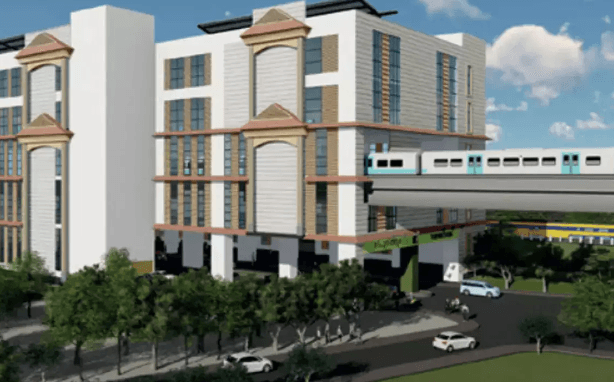Kochi: The ambitious Tripunithura transit hub project, designed to transform the royal town into a central transportation nexus by integrating the Metro station, railway station, and a planned bus terminal, has encountered significant obstacles.
The primary issue is the lack of follow-up actions by the relevant authorities. Despite an initial announcement by the Tripunithura municipality to lay the foundation stone before June, no progress has been made regarding land acquisition or demarcation for the proposed hub. This stagnation has raised concerns among residents and stakeholders about the project’s feasibility and timeline. Initially, the municipality planned to enlist the help of Kochi Metro Rail Limited (KMRL) to prepare a detailed project report (DPR) for the bus terminal. However, this plan was abandoned, and the municipality now seeks to collaborate with the Greater Cochin Development Authority (GCDA) for the DPR’s preparation. The municipality has requested government approval to appoint GCDA for this task, but a final decision remains pending indefinitely.
Municipal sources indicate that the state government must ultimately decide on the matter. Once approval is granted, the municipality will initiate the land acquisition procedures necessary for the project’s advancement. Currently, approximately five acres of vacant land near the Tripunithura railway and Metro stations have been earmarked for the bus terminal, with plans to utilise around 3.5 acres for its construction. Initially, the municipality proposed a five-acre area for the bus terminal’s establishment, indicating some flexibility in land use plans.
In a bid to secure funding, a Rs 100 crore proposal was submitted to the state government, outlining the construction of the bus stand and a road along the proposed Metro rail line to Tripunithura. However, the government rejected this proposal, citing insufficient funds. The delay in moving forward with the Tripunithura transit hub project highlights the challenges faced in large-scale infrastructure projects, particularly those requiring significant inter-agency coordination and substantial financial investment. The situation underscores the need for more streamlined processes and better resource allocation to ensure that critical infrastructure projects do not remain stuck in limbo. As the municipality awaits the state government’s decision, the residents of Tripunithura and the surrounding areas remain hopeful that the project will eventually come to fruition, enhancing connectivity and boosting local development. The successful implementation of the transit hub could significantly ease transportation woes and contribute to the overall growth of the region.


